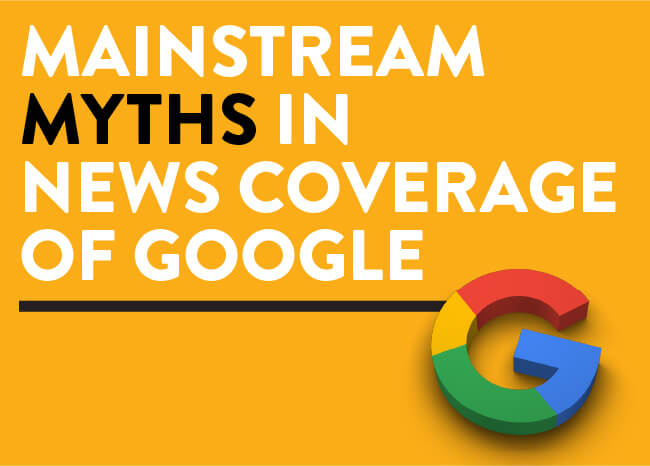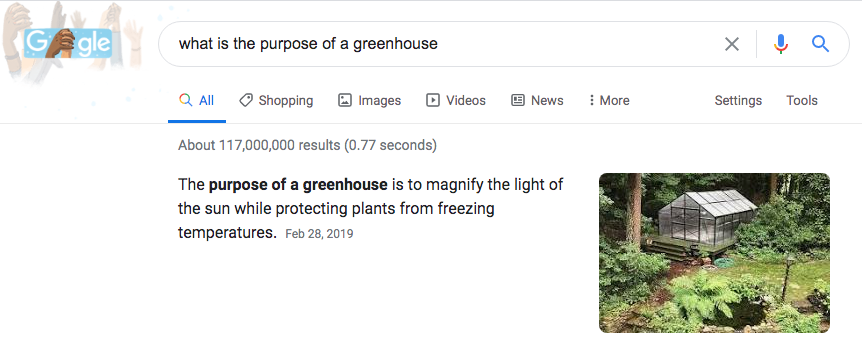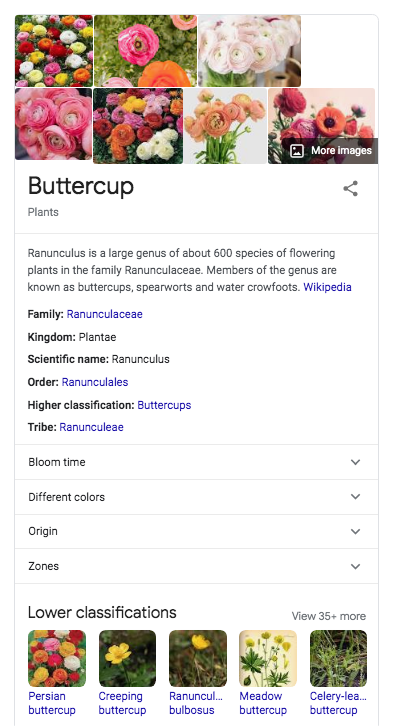
I work in SEO, and even I’m sick of hearing about Google.
Between the Department of Justice’s monopoly lawsuit and accusations of manipulated search results, there’s been an abundance of Google news as of late. Though each critique is distinct and significant in its own right, I seem to follow the same problematic thread in virtually every article I read: a fundamental misunderstanding of how Google Search works.
Readers and searchers are directly harmed by this misrepresentation of Google. Google is an indispensable tool that millions of people use every day. Each searcher deserves to get accurate, factual, and useful information about Google from the news outlets they trust. What they’ve largely received instead are conspiratorial headlines, fear-mongering, and misrepresentations of the entire search industry — which does far more for perpetuating clickbait than it does for high-quality journalism.
This isn’t to say that Google can do no wrong. Google holds a level of power that, as a searcher, I’m highly uncomfortable with. What I take issue with is how the misunderstanding of search undermines the very points that many authors are trying to make. The mainstream misconceptions of search only distract from and weaken the valid criticisms that do need to be levied against Google.
I expect much of the controversy currently surrounding Google to continue in the coming months. However, I also expect more news articles to follow. But before I read another lukewarm “hot take” about Google’s anti-competitive tendencies or manual interference in the search results, there are a few fundamentals that people outside the search industry need to understand.
Google Doesn’t Own the Web
Google doesn’t own the World Wide Web (at least, not in the way you may think they do). The results you see after a search were not created by Google, nor does that content belong to them. For each search, Google just puts together a list of links that they believe will provide the best answer to your question.
This is also true for the features included in a search engine results page (SERP), like featured snippets (Ex. 1) and knowledge panels (Ex. 2).


Google does not write that information themselves or manually program it into the SERP. Rather, they either find content from trusted sources or from the best results for that particular query and display it directly in the SERP. This helps users find information more easily and quickly, saving them the hassle of combing through multiple sites and creating a better user experience.
It may seem inconsequential, but this is an important distinction to make. The relationship between Google, web content, and searchers is a symbiotic one. Organizations can make their content easier to find and more visible to interested readers; searchers can get valuable and helpful information; Google can earn more money by advertising in the search results. It’s an ecosystem where everyone can benefit — not just Google.

You Aren’t Seeing the Web
That being said, you aren’t even seeing the World Wide Web in its natural state when looking at Google’s search results. You’re looking at an approximation or interpretation of what Google “saw” when they last visited that page.
Google continually scours the web using crawlers to look for new content to include in the SERPS. These crawlers analyze and categorize web pages. All this information is then put into Google’s index where it can be easily accessed at a later date. When you search for something, Google will reproduce the content that their crawlers have already found and stored in the index.
Technically, this means you’re seeing everything through Google’s lenses. Whether you like it or not, this is precisely how Google Search has been programmed to work. Though this may sound concerning, you likely don’t have much to worry about.
There are millions of searches every minute of the day, many of which have never been searched before. Though there is some manual quality control feedback from the search Quality Raters, not even Google has the resources to make those changes by hand. And frankly, beyond providing good results for your query, Google probably doesn’t care that much what you’re searching for — just that you’re using their platform to search for it.
You Can’t Trust Everything You Read
You won’t always find unbiased or accurate information in your Google search results. Everyone has their own biases, motives, and opinions when it comes to creating and sharing content. Unfortunately, those opinions don’t have to be helpful or even true to appear at the top of a SERP. Google is not an arbiter of truth; it just looks for the nearest thing to a consensus on facts or usefulness in web pages, and presents what seem like the “best” results accordingly.
Google Search is a common medium that some take advantage of to advance their own interests. People can use manipulative tactics to make their pages appear at the top of the SERPs, regardless of their quality or accuracy, for their benefit or agenda. Though Google continues to combat these issues, you cannot take everything you find through this search engine at face value. Humans are still better at critical thinking and fact-checking than search engines, because at the end of the day, search engines are just designed to give people what they are looking for. Any tool can become a weapon in the wrong hands, or the wrong situation.

Google Tries to Filter Spam and Bad Results
All of that said, Google has a vested interest in maintaining the integrity of their SERPs; if they want to keep their user base, they must continue to provide accurate search results. If, time and again, you received incorrect information or irrelevant results, you’d have little to no incentive to keep using Google Search and may switch to a different search engine altogether.
To keep their users, Google has long focused on making its search engine as reliable and useful as possible. Historic Google updates have actively fought against low-quality and spammy results. They’ve also put a greater emphasis on sites’ and authors’ expertise, authoritativeness, and trustworthiness in search, particularly on topics that could have real-world impacts for users. Additionally, in recent years, Google has also made a concerted effort to fight disinformation, working to keep results free of both inaccurate and potentially harmful content.
Google will likely stay committed to providing high-quality results that are both accurate and useful. Of course, they aren’t perfect, and some things may slip through the cracks; after all, Google has hundreds of billions of webpages in their index, and it’s virtually impossible to manually assess every single one of them. It’s your job as a searcher to scrutinize the information (including the sites you visit and authors you read) you discover through search engines.
SEO Is Everywhere
First came Google, then came search engine optimization.
SEO refers to “a variety of practices, strategies, and techniques that can help a website appear higher up in the search results.” These strategies include building links between websites, creating new pieces of content, and ensuring websites are technically functional. As appearing in Google’s search results becomes more important to more people, so does SEO. Simply put, SEO is now essential — and it’s already everywhere.
You’ve been seeing the effects of SEO for years. This industry has existed for over two decades and has a long history with Google. It takes two to tango, and SEO’s dance with Google has helped make the algorithm as sophisticated, user-friendly, and popular as it is today.
On the one hand, Google has made massive changes to search to prevent unsavory SEO professionals from gaming the system, diminishing users’ experiences, and tarnishing the quality of their brand and search engine. On the other, ethical SEO professionals have responded to these changes by improving their tactics, creating higher-quality web experiences, and aligning their work with Google’s goals and principles. Most aren’t looking to manipulate search results or flood the SERPs with poor content to make a quick buck. On the contrary, SEO is partly responsible for your high-quality search results, as SEOs strive to help websites provide you with relevant answers to the questions you’re searching for.

Google Is Dynamic
Google updates its search algorithm constantly. In 2019 alone, Google made 3,620 “improvements” to its algorithm, amounting to an average of almost 10 updates per day. This means that, in theory, you could search the same thing 10 times over a single day and get different results each time because of these constant changes.
Not all of these updates are noteworthy. Rarely are they broad core updates, or a complete overhaul of the algorithm that result in significant changes to the SERPs. Unless there’s a new feature or major change to the interface, the average searcher likely won’t notice these updates. Even the most seasoned search professionals may not be able to detect these minor changes.
These updates are not thinly veiled attempts to conceal manual changes that support Googles’ interests — aside from creating a superior experience for their users, of course. Each update may not be important in and of itself, but what they represent as a whole is extremely important; it’s evidence of Google’s commitment to improvement.
These updates are why Google has become the most-used search engine in the world. They’re why you “Google” something, instead of “Asking Jeeves” or “Bing-ing” it. They’re the reason Google has become is what it is today, and why we’re even having this conversation.
How We Talk About Google Matters
No author or publication should get a free pass simply because they don’t understand search. Erroneously describing the basics of search isn’t revolutionary. Vaguely implying that Google is duplicitous, fraudulent, or evil isn’t breaking news. Ultimately, it’s just a disservice to readers and searchers alike.
Google has an astonishing level of influence; the consequences of their decisions and troubling behavior have the potential to affect millions of people. If we’re going to take Google to task, and shine a light on the various questionable, problematic, or outright damaging features and practices of the search engine, we owe it to ourselves to get the basic facts right, and assign blame or scrutiny accurately.

